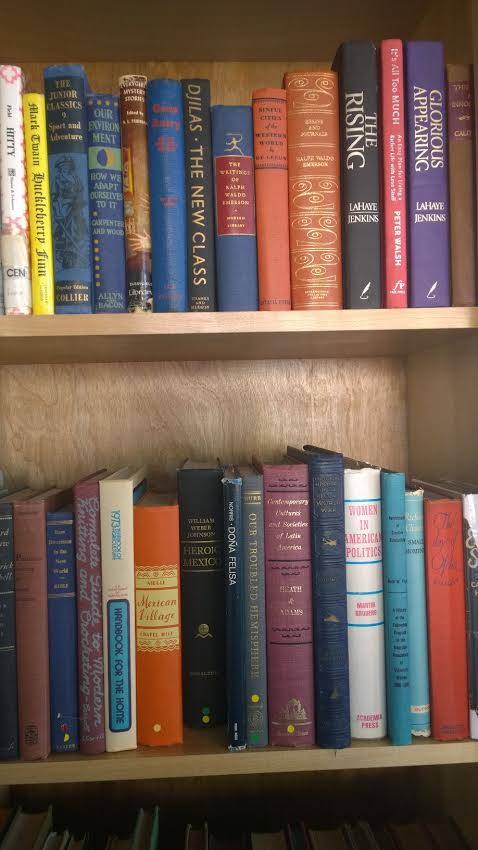When it comes to our relationship to technology, it’s complicated
By Morf Morford
Tacoma Daily Index
Like most people probably, I love – and hate – technology.
It allows us to do things unimaginable just a few years ago. It also makes us all vulnerable, in ways most of never would have believed.
Have you noticed that everything seems to have a steep “learning curve”. Everything I use, open, read or try to download has layers of warnings, restrictions and waivers.
Seemingly endless passwords and user names make me crazy.
As much as I use, and mostly appreciate technology, every so often I am horrified at what I just stepped into. Just a glimpse of the “dark web” and what it holds about each one of us, from stolen credit cards to bogus social security cards and much more makes me wonder what kind of Faustian bargain we have all, willingly or not, become an accessory to. (1*)
To say that technology is a tool like any other, to be used in positive or negative ways is the ultimate of lazy thinking.
After all, is any “tool” – from hammer to pencil to antibiotic – really ever neutral?
And is any “tool” inherently safe from misuse whether intentional or accidental?
Technology is intoxicating, addictive and intrusive like nothing else in human history.
Like everyone else, I use my smart phone nearly continuously through out my day. And I feel profoundly disoriented if I don’t know where it is.
Is there any panic like the panic of losing your phone?
My phone has become like a child – or an appendage – like a thing somewhere between a limb and a close relative. Its various chirps and beeps have become something approaching – if not mimicking – my own vital signs.
As much as I might have a gut-level negative reaction to those annoying chirps, I know that they, for better or worse, are a cyber version of my own vital signs.
I have a Fitbit that monitors my heartbeat, pulse and sleep patterns – and probably much more. What else does it know about me? And who else has access to my every breath and heartbeat?
A year or so ago I paid for a Ancestry.com DNA test. What did I just do? Who “owns” my DNA? Who decides how it can be used? Has my privacy been lost forever? (2*)
I have a distant relative who, thanks to Ancestry.com, was found to have fathered a son – over 40 years ago – who had only a few years ago married into his biological father’s family.
To put it mildly, it is very confusing.
Yes, cold-case crimes have been solved thanks to DNA tracking, but I wonder what else they can do.


In one generation Apple made the smartphone ubiquitous if not essential. At any given moment of the day in America, approximately 660,000 drivers are using cell phones or other electronic devices while driving.
Facebook connected over 2 billion people. If Facebook were a country, it would be the largest in the world.
Google put the answer to almost any question just a few keystrokes out of reach. How correct that answer might be is always a question.
Companies like Amazon, Netflix and Uber upended entire industries, eliminated thousands of jobs and made themselves indispensable to many.
Facial recognition, whether in airports or city streets, is tracking us all.
Banking, elections and medical records are subject to hacking.
Everything from national security to our individual medical records has become just another susceptible data point.
And consider the pace of life that we now consider “normal” – every minute, according to The Spectator Index (@spectatorindex):
473,400 Tweets are sent
4,500,000 videos are watched on YouTube
3,788,140 searches are made on Google
12,986,111 text messages are sent
1,111 packages are shipped by Amazon
750,000 songs are streamed on Spotify
49,380 photos are posted on Instagram
And if you had any doubt that the vast majority of online searches are sifted through the ever-watchful eyes of Google, consider this statistic; (3*)
Global market share of search engines, 2019.
Google: 88.4%
Bing: 4.8%
Yahoo: 3.1%
Baidu: 0.66%
Millennials have made fun of their elders for their fear/disdain or even distrust of technology for years.
But it turns out that the younger generation (known as Generation Z, those born after 1998) is not quite enamored by the prospect of endless, intrusive monitoring of every conversation, meal, purchase or song listened to. (4*)
Depression and suicide among young people has been correlated to screen-time.
Whole new categories of health issues from vision to spinal impairments have emerged from extensive tech usage.
Even fashion has emerged with designs intended to thwart the ever-present intrusion of facial recognition programs (https://bigthink.com/technology-innovation/facial-recognition?).
The reality of every song on Spotify or Pandora, every YouTube video and every Google search being tracked should give each one of us cause for concern.
My solution is as simple as it is radical; leave your phone behind once in awhile, listen to CDs or broadcast radio, read a physical book or have a non-digital face-to-face conversation with someone, have a meal without an electronic interruption.
You just might like it.
(1*) Just a reminder – a Faustian bargain is where a person trades their soul and eternal identity for the promise of worldly knowledge,wealth or fame..
(3*) The Spectator Index








